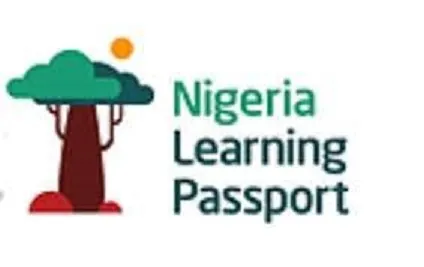Education is one of the most powerful tools for personal and societal transformation. In Nigeria, the barriers to education—such as distance, cost, and limited access to quality resources—have been a challenge for many years. The Nigeria Learning Passport aims to break down these barriers and provide accessible, quality education to every citizen, especially those in underserved areas.
What is the Nigeria Learning Passport?
The Nigeria Learning Passport is an innovative digital education initiative designed to offer free and open access to high-quality learning resources for all Nigerians. This initiative is part of a broader movement to ensure that every child, adolescent, and adult in the country has the opportunity to improve their knowledge and skills, regardless of their geographical location or socioeconomic status.
In a global context, learning passports are becoming essential in making education more accessible in developing nations. They leverage technology to provide a flexible and scalable learning platform that can reach millions of people, especially in remote or conflict-ridden regions.

Key Features of the Nigeria Learning Passport
- Online Learning Platform:
The learning passport is a digital platform, allowing users to access content anytime and anywhere, as long as they have internet access. - Free and Open Access:
One of the most remarkable features of the Nigeria Learning Passport is that it is completely free. All learning materials, including courses, videos, and tutorials, are available to everyone, regardless of financial background. - Multilingual Support:
To accommodate Nigeria’s diverse population, the platform supports multiple languages, including Hausa, Yoruba, Igbo, and English. This ensures that people from different regions and language groups can fully engage with the content.
Benefits of the Nigeria Learning Passport
The Nigeria Learning Passport brings numerous benefits to the education sector:
- Enhancing Education for All:
It ensures that quality education is accessible to students in rural or conflict-affected areas, overcoming traditional barriers like the need for physical schools and teachers. - Promoting Inclusive Learning:
The platform is designed to cater to learners of all ages and abilities, providing personalized learning experiences. It also offers materials for learners with disabilities, ensuring inclusivity. - Bridging the Education Gap:
The Learning Passport helps to close the educational gap by providing materials that align with international standards, improving the quality of education at all levels.
How the Nigeria Learning Passport Works
The process of using the Nigeria Learning Passport is straightforward:
- Registration Process:
Students and educators can sign up for the platform by creating a free account on the official website or app. - Accessing Courses:
Once registered, users can browse the available courses, select their preferred subjects, and begin learning at their own pace. - Learning Pathways:
The platform provides structured learning paths for different levels of education, such as primary, secondary, vocational, and adult education.
Available Courses on the Nigeria Learning Passport
The Nigeria Learning Passport offers a wide range of courses, including:
- Primary and Secondary Education Content:
These courses cover various subjects such as mathematics, English, science, and social studies, aligned with the national curriculum. - Vocational and Technical Courses:
For students looking to develop practical skills, vocational training in areas like carpentry, welding, and agriculture is also available. - Adult and Lifelong Learning:
Courses focused on adult education are designed to help individuals continue their learning journey, improve their literacy, and gain new skills for the workforce.
Collaborations and Partnerships
The success of the Nigeria Learning Passport relies on strong collaborations:
- Government Initiatives:
The Nigerian government has been instrumental in promoting and supporting the Learning Passport, ensuring its integration with national education policies. - Partnerships with International Organizations:
The platform benefits from partnerships with organizations like UNESCO and the World Bank, which provide funding and expertise to strengthen the initiative. - Collaborating with Educational Institutions:
Nigerian universities and schools are working alongside the Learning Passport to provide tailored content that meets the needs of local students.
Impact of the Nigeria Learning Passport
Since its inception, the Nigeria Learning Passport has made a significant impact:
- Expanding Access to Education in Remote Areas:
Students in rural communities who previously had limited educational resources are now able to access high-quality learning materials. - Helping Students in Conflict Zones:
The Learning Passport has proven to be invaluable for students in conflict zones, offering them a safe way to continue their education without the need for physical schools. - Strengthening the Education System:
By improving access to learning, the platform has contributed to the overall enhancement of the education system, preparing students with the skills they need for future success.
Challenges Faced by the Nigeria Learning Passport
Despite its successes, the Nigeria Learning Passport faces challenges:
- Internet Connectivity Issues:
Internet access is still a problem in some rural areas, limiting the effectiveness of the platform for certain populations. - Digital Literacy Barriers:
Not everyone is comfortable using digital platforms, which can hinder the adoption of the Learning Passport, especially among older generations or those with limited tech experience. - Limited Awareness and Adoption:
Many people are still unaware of the platform’s existence, and more outreach is needed to ensure it reaches the widest possible audience.
The Future of the Nigeria Learning Passport
Looking ahead, the future of the Nigeria Learning Passport is promising:
- Expanding Course Offerings:
The platform plans to add more specialized courses, including professional certifications and courses tailored to the Nigerian job market. - Potential for National Integration:
There is potential for the Learning Passport to become an integral part of Nigeria’s national education system, fully integrated into schools and universities across the country. - Future Collaborations:
Additional partnerships with tech companies, NGOs, and global education providers are expected, further enhancing the platform’s offerings.
Conclusion
The Nigeria Learning Passport is a groundbreaking initiative that has the potential to transform education in the country. By providing accessible, free, and high-quality learning resources, it is helping bridge educational gaps and promote lifelong learning for all Nigerians. With continued support and improvements, it can play a pivotal role in shaping the future of education in Nigeria.
More details here: https://nlp.education.gov.ng/



